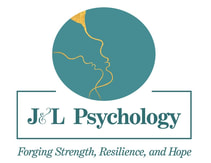|
Out with minimizing, in with acknowledging By Lili Romann We’ve all had a lot to deal with recently. Between the pandemic, a war-torn world, a democracy at odds with itself, a nearing recession and more, there are lots of reasons to feel scared and stressed. Aside from these large-scale issues, you may be working a hybrid schedule and having to find a balance between your work hours and picking up your kids. Or maybe your course load at school is kicking your butt and you are worried because your family is facing hardships. The list seems to be endless. The key to navigating a stressful, or often tumultuous sequence of events – this applies to everybody – is how you choose to confront your stress (Centers for Disease Control and Prevention, 2021). Let’s introduce the topic of “toxic positivity,” an approach to emotion management that involves dismissing negative emotions and overgeneralizing positive ones. Toxic positivity is a belief that, no matter what, you should keep a positive mindset (Goodman, 2022). People following this concept appear positive when they are struggling. While there is nothing wrong with “looking on the bright side” now and again, persistent toxic positivity in controllable situations can be dangerous (Troy et al., 2013), because it prevents us from addressing our painful emotions. Instead of acknowledging problems or certain burdens in your life directly, you mask the reaction as if it’s no big deal. The concept has been discussed in social media and not yet widely studied, but author Whitney Goodman describes toxic positivity in her book as “... the advice we might technically want to integrate but are incapable of synthesizing at the moment. Instead, it typically leaves us feeling silenced, judged, and misunderstood,” (Goodman, 2022, p. 10).
We’ve probably all found ourselves engaging in toxic positivity or have been on the receiving end of it at one time or another. A classic example of this would be responding to someone sharing that they had a horrible day by reminding them to consider how fortunate they are in life. When spreading this form of coping, it involves dismissing others’ feelings rather than exploring them (The Dark Side of Positive Vibes, The Psychology Group, n.d.). You may find yourself suppressing strong negative emotions and ignoring your problems. You also might feel guilty for having these emotions. A common self-focused toxic positivity thought may sound like: “I have so much to be grateful for, I should not be sad about not getting that promotion.” When we deny our negative emotions, it puts us at greater risk for isolating ourselves from others, suppressing emotions and subsequently putting a great deal of stress on the body (Gross & Levenson, 1997). Engaging in toxic positivity creates rigid and unrealistic expectations for how you allow yourself and others to emote. Instead of using toxic positivity to cope, try to be more genuine with your feelings. Face reality head on. Minimize emotions and events less, however small they may seem, and instead maximize the potential for growth. When we constantly attempt to toss things to the side and don’t take time to consider what we’re going through, those negative emotions pile up. They don’t disappear, but tend to become stronger over time. Think of a rumbling volcano. Eventually, it’s going to explode. Here are some specific ways to avoid this stress build-up, and to foster a healthier relationship with your emotions, as well as the way you tend to others’ emotions.
It shouldn’t be a burden to reevaluate how to deal with your stresses, but it does take some tweaking. Try to encourage yourself and those around you to more organically face your problems and emotions. See and process things for how they really are. In a world so hectic and fast-paced, the sooner we acknowledge and work through the realities, the better equipped we are to move forward. References Centers for Disease Control and Prevention. (2021, November 30). Coping with Stress. https://www.cdc.gov/violenceprevention/about/copingwith-stresstips.html Goodman, W. (2022). Toxic positivity: Keeping it real in a world obsessed with being happy. TarcherPerigee. Gross, J.J., & Levenson, R.W. (1997). Hiding feelings: the acute effects of inhibiting negative and positive emotion. Journal of abnormal psychology, 106 1, 95-103 .https://www.semanticscholar.org/paper/Hiding-feelings%3A-the-acute-effects-of-inhibiting-Gross-Levenson/f2b1d2302bc3d69695823dbaec3b49bf30747244?p2df Quintero, S., & Long, J. (n.d.). Toxic positivity: The dark side of positive vibes. The Psychology Group Fort Lauderdale. Retrieved from https://thepsychologygroup.com/toxic-positivity/ Troy, A. S., Shallcross, A. J., & Mauss, I. B. (2013). A person-by-situation approach to emotion regulation: cognitive reappraisal can either help or hurt, depending on the context. Psychological science, 24(12), 2505–2514. https://doi.org/10.1177/0956797613496434 Comments are closed.
|
Categories
All
Archives
March 2024
|
Home The Practice FAQs Practice News & Blog Stress & Anxiety Depression Trauma Couples Therapy Child Therapy, Parenting Coaching & Family Therapy Self Development Treatment For Professionals Contact
J&L Psychology Group, PLLC302 5th Avenue, 11th Floor, #1112, New York, NY, 10001
(646) 609-6323 If this is a mental health emergency, please call 911, go to your nearest emergency room, or call or text the Suicide and Crisis Lifeline at 988. Stay up to date: |
Follow us on Facebook and Instagram:
© Copyright J&L Psychology Group 2021
|


 RSS Feed
RSS Feed
